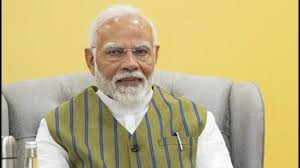Exclusive: Ahead of Modi’s G7 visit, India had collated info on 8 Canada-based gangsters, Khalistani Terrorists for talks with Ottawa

Ahead of Prime Minister Narendra Modi’s G7 visit to Italy, Indian agencies compiled detailed profiles on eight individuals based in Canada. These individuals are suspected of involvement in organized crime and Khalistani terrorism. The government planned to share these dossiers with Canadian officials during bilateral discussions.
India aimed to highlight its growing concerns about extremism operating from Canadian soil. Officials believe the gangsters maintain ties to banned Khalistani outfits and use Canada as a safe base.
India’s Focus on Crime-Terror Nexus
In recent years, Indian intelligence has tracked how criminal syndicates and pro-Khalistan groups work together. Many Canada-based figures have been linked to crimes such as extortion, contract killings, and fundraising for separatist causes. These networks target Punjab and other regions in India.
The individuals featured in the dossiers reportedly include associates of Lawrence Bishnoi and Goldy Brar. Some also have links to Khalistan Tiger Force (KTF) and Babbar Khalsa International (BKI). Authorities believe they direct violent operations from abroad while avoiding prosecution.
Shift Toward Direct Diplomacy
In the past, India raised concerns through diplomatic channels. But this time, New Delhi chose to prepare hard evidence. Officials compiled intelligence inputs, financial records, social media activity, and crime histories. The aim was to build a credible case for action.
An official said, “These are not vague claims. We’ve created dossiers with verified data and legal references. The idea is to encourage accountability.”
The move reflects India’s sharper stance toward countries that host radical elements without taking action.
Canada’s Response Remains Measured
Canada has often emphasized the need for due process. It defends freedom of expression and religious rights, even when that includes anti-India rhetoric. This stance frustrates Indian authorities, who see it as a loophole that allows extremists to operate freely.
While Canadian agencies acknowledge the presence of separatist sympathizers, they rarely take punitive action. Legal constraints and political sensitivities play a big role.
India views this hesitation as a security risk, especially after recent targeted killings and online threats from overseas.
G7 Summit: A Strategic Opportunity
The G7 summit in Italy offered India a global platform to raise these issues. Though PM Modi and Prime Minister Trudeau reportedly avoided a formal bilateral meeting, Indian officials engaged with their Canadian counterparts on the sidelines.
By bringing documented cases to the table, India sent a clear message: safe havens for extremists threaten international peace. New Delhi wants its partners to treat these threats with the seriousness they deserve.
Threats From Abroad Continue to Grow
Many individuals in the dossier face accusations of plotting or financing violence in India. For example, Goldy Brar, wanted for the killing of singer Sidhu Moosewala, remains active on social media from an undisclosed location. He has also issued threats to Indian leaders.
The government sees this not just as a law-and-order issue, but as part of a broader ideological challenge. Officials say the fusion of crime and radical ideology creates a dangerous network. These networks thrive on diaspora funding and digital anonymity.
India Demands Global Accountability
India’s outreach to Canada isn’t limited to bilateral talks. It is part of a larger strategy to push for global norms against harboring extremists. Indian officials say democratic freedoms must not be misused to promote separatism or terrorism.
“This is about global security,” an official stated. “When known criminals use foreign soil to plan attacks here, it’s everyone’s problem.”
The country hopes that more allies will see the long-term danger of tolerating such actors.
Conclusion
India’s decision to share dossiers on eight Canada-based gangsters and Khalistani extremists at the G7 summit marks a turning point. The move signals a firmer diplomatic tone and a push for international collaboration. While Canada continues to balance its legal principles, India expects clear action.
As the global order evolves, the challenge lies in aligning national security with democratic values. India is making it clear: neutrality toward extremism is no longer an option.






